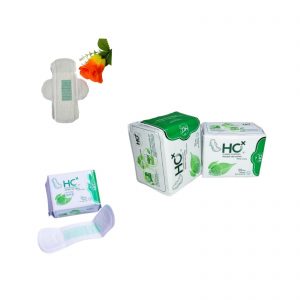Menstrual health is a state of complete physical, mental and social well-being in relation to menstrual cycle. Menstrual cycle is a human right issue-not just a health one, each woman and girls have a right to bodily autonomy. The ability to care for your body while menstruating is very crucial.
What is menstruation? A lot of people term it ‘period’ while in some communities it is a taboo to utter or mention that word as it could be contributing to menstrual stigmatization.
The menstrual cycle is a natural process. It is a complex controlled by a female hormone that causes regular bleeding which a lot of people call it ‘periods’. The menstrual cycle has four phases; Menstruation cycle, the follicular phase, ovulation phase and luteal phase
The menstrual cycle typically lasts about twenty-eight days; however, it is normal to have a cycle that is a few days shorter or longer. Days of menstrual cycle are counted from day one of menstrual leading to day one of the next bleeding. It is the process by which a woman’s body prepares for pregnancy. Once a month the female body grows a new uterine that is ready to receive and nourish a fertilized egg. If an egg is not fertilized the uterus sheds the endometrium and a woman experiences bleeding
Most women have the first period between the ages of eleven to fourteen and have a regular menstrual cycle until about age of forty-five. Though a lot of mental awareness have been initiated in our societies many girls are still uninformed and unprepared for their first period. They experience fear and anxiety upon reaching menstruation. Their mothers and female relatives or peers are their main source of information.
Today, millions of women and girls around the world are stigmatized, excluded and discriminated against in participating in some ceremonial events simply because they menstruate, in addition, cultural norms and taboos surrounding menstruation creates further barriers to achieving menstrual health. In rural areas where girls are not given privileges to education or from low-income families where accessing menstrual products is a problem.

It is challenging for girl who undergoes menstruation to bear with it since they are also condemned by cultural norms. For girls that come from low income or poor families where affording to purchase sanitary towel is difficult, they may be forced to use unhygienic materials such as torn pieces of cloth, matters sponge, old rags, or even dig a hole on the ground to sit on for the whole period as a means to manage their menstrual flow. In such cases the use of unhygienic materials can lead to; leakage, infections, psychological discomfort which may culminate to poor performance and stigmatization. The inaccessibility of menstrual products can result in embarrassment, anxiety and shame when ladies stained their clothes.
There is a direct need for knowledge dissemination among school children and their families. Increased awareness or menstrual hygiene and aces to requisite sanitary liter products in rural areas. This would help to ensure that primary, secondary and college or university schooling girl-child minimize class absenteeism and put them at par with their male counterparts, reduce risk of infections in University Girls undergoing the menstrual cycle who may want to use unhygienic products
A lot of campaigns have been to curb menstrual awareness which is usually done on menstrual hygiene day on 28th May annually. It is a call that Global and National Health and Development Policies prioritize menstrual health with investment reflecting the important role it plays on human rights, public health, gender equality and sustainable development.
The community based gender groups or other Non-Government organizations that wish to create awareness and champion for safe menstrual, using the promotion and distribution of pads can be an entry point for engagement on wider issues related to menstrual hygiene and reproductive health, demonstrate how opportunities for contact between girl-child and the society on a specific issue can also be used to promote and develop wider action on issues that affect girls’ health status and promote gender equality where Ladies’ dignity, Privacy, Self-efficacy and Bodily integrity factors are essential.
Schools, work places and public institutions should ensure that people can manage menstruation with comfort and dignity. The targeted policies should seek to eliminate period poverty in which low-income women and girls struggle to afford menstrual products and have limited access to water and sanitation towards achievement of menstrual health
Written by:
Daniel Boke Titus,
Public Relation Student- MKU Thika, Main Campus
